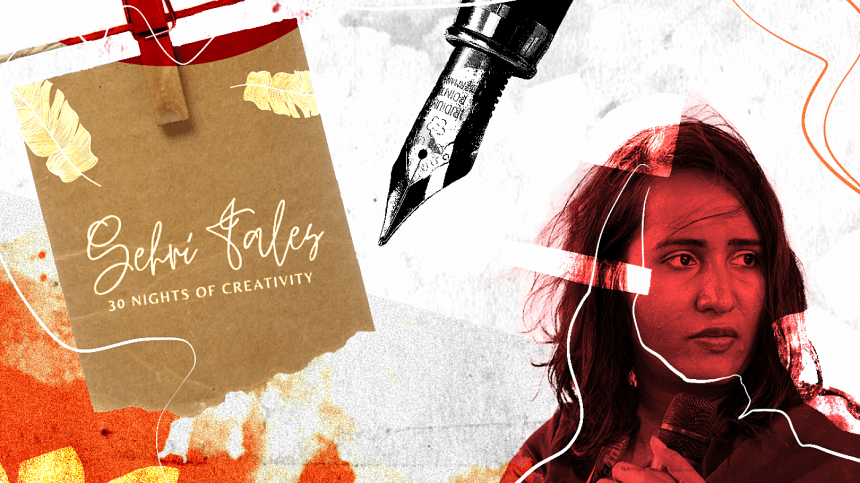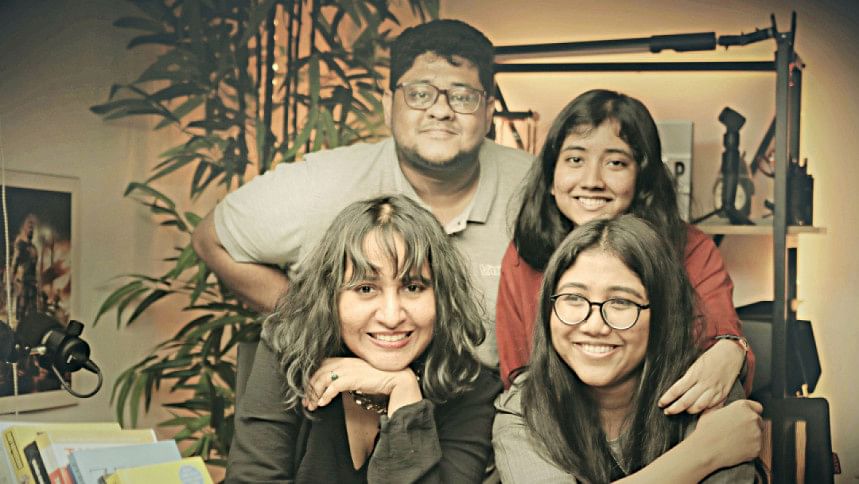Ramadan Maghfirat: How I channelled my rage into inspiration for Sehri Tales

Ramadan, for the faithful, is a journey towards absolution. The fasting, the abstinence, the special prayers and acts of charity mandated by the dictates of the holy month are meant to be a holistic spiritual cleansing so that one may truly repent of one's trespasses before being forgiven. This forgiveness isn't limited to divine pardons; part of the process of unburdening one's soul also involves learning to forgive.
In this city of a thousand transgressions, that's really hard to do. From traffic, to price hikes, from shoddy healthcare to unscrupulous services, there is no dearth of triggers and fuel for resentment on a 'normal' day. When you add to that the rigours of fasting, the hunger and sleep deprivation and how irritable that makes us, it becomes even harder to be patient and forgiving.
It was never supposed to be easy. But the rise of cancel culture, while it has created some context for accountability, has been co-opted by the self-entitled to paint with broad strokes and create a more widespread environment of intolerance. Forgiveness isn't an option when there is no scope for empathy or dialogue. But what does it truly mean to forgive?
To forgive someone is to actively decide to overcome pain that was inflicted by that person. It involves letting go of anger, resentment, shame, and other reasonably negative emotions associated with an injustice, and to treat the offender with empathy and compassion even if they are not entitled to it. It doesn't have to involve reconciliation, and it doesn't mean that the injustice is forgotten, or that one now condones the offender's behaviour.
At the onset of the pandemic, I had had a falling out with a friend over our geo-political ideologies. She was so offended by my strong anti-racist stance that she did what a lot of people decades younger than her are prone to do: she took to social media, and proceeded to drag me in long, ranty posts for almost a week. Although she didn't name me, she'd provided enough clues for our common friends to identify me, and because she didn't name me, it emboldened a lot of keyboard warriors to come forth and chip in their two cents about an argument for which they had no context, and since their quarry was anonymous, the reader can imagine that no one pulled their punches.
As tempted as I was to bark back at this cyber-bullying, Ramadan was starting, so I fell back on a coping mechanism that had helped me deal with toxic friends and colleagues before: the Sehri Tales. I channelled my hurt, anger and frustration into poetry and flash fiction that had nothing to do with my agitator and her cronies. By the end of the month, I had forgiven her, and although I chose not to remain friends with her, I had moved on from the incident. From her frequent outbursts and references to the fights in the comment sections of random public posts, I knew my former friend took a much longer route towards forgiveness.

Over the five years that I have been running Sehri Tales, I have had the pleasure of watching many writers of varying ages and skill levels find their own healing route to forgiveness through their writing. They have explored themes of family dynamics, power plays in relationships, regressive social mores, and through empathetic character sketches and cathartic revenge fantasies, they have managed to achieve a better understanding of their own emotions about these issues.
The realisation I have had while reading these stories for the past five years, however, is that, while forgiving another person is hard, forgiving oneself is even harder. The stories of guilt and shame, and self-reproach, and low self-esteem have often made for really difficult reading because they are so emotional and relatable.
Our culture prides itself on its modesty, but the flip side of our natural self-effacement is that we haven't quite learned to recognise or celebrate our own worth, to build ourselves up with compassion and treat our shortcomings as avenues for growth instead of reasons for punishment.
This month, as we pray, and fast and seek Maghfirat from the Divine, may we find it in our hearts to exercise a little patience and compassion for people around us, who may have their own struggles, and also for ourselves.
Sabrina Fatma Ahmad is a writer, journalist, and the founder of Sehri Tales annual creativity challenge.

 For all latest news, follow The Daily Star's Google News channel.
For all latest news, follow The Daily Star's Google News channel. 








Comments